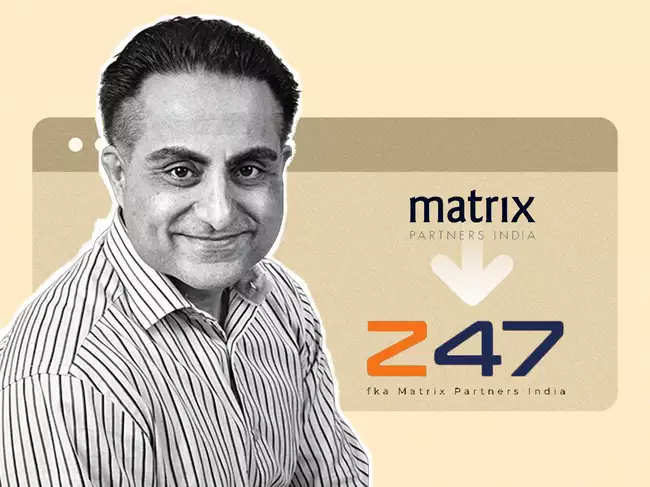Avnish Bajaj, co-founder of Matrix Partners India along with Rishi Navani in 2006, has announced the firm’s rebranding to Z47 as it moves towards independence. Matrix Partners India, an early backer of companies like Ola, Ola Electric, OfBusiness, and Razorpay, is taking a path similar to Sequoia US, which also separated from its India and China units. Bajaj, who previously co-founded Baazee with Nexus Venture Partners‘ Suvir Sujan and sold it to eBay in 2004, views the rebranding as a natural progression for the Mumbai-based venture capital firm.
In the early 2000s, many Indian VC funds were established as affiliates of US firms but have since evolved, with leadership changes and partnerships shifting in response to the industry’s dynamics. The past two years have seen significant resets in the global VC sector, with geopolitical tensions leading US firms to distance themselves from China and Indian franchises struggling due to performance issues in cash distribution and returns.
Despite these challenges, Bajaj remains optimistic about India’s potential, emphasizing that limited partners (LPs) still believe in the country’s prospects as more companies go public. Z47′s portfolio includes Bhavish Aggarwal’s Ola Electric, which recently went public and saw a significant rise in stock value, indicating strong market confidence in the electric vehicle sector. Bajaj’s early investment in Ola, starting in 2013, has grown alongside other notable IPOs, including Go Digit, FirstCry, and possibly Swiggy, which highlight the growing strength of Indian startups.
Bajaj expressed caution about the potential for a new influx of capital driven by recent IPO successes, as exits typically encourage further investment. He hopes the market has learned from the investment frenzy of 2021, which led to booms and busts, a recurring cycle in the venture capital landscape.
Reflecting on Matrix India’s 18-year journey, Bajaj acknowledged the firm’s challenges, particularly around liquidity, but remains committed to achieving a 3x net return for LPs. Matrix India raised $550 million for Fund IV last year, building on approximately $1.4 billion raised since its inception. Bajaj stresses the importance of maintaining manageable fund sizes, suggesting that optimal returns are achieved with funds between $250 million and $750 million. He cautions against larger funds, which often see diminishing returns.
Some of Matrix India’s recent partial exits include investments in Five Star Business Finance, OfBusiness, and Dailyhunt, signaling ongoing efforts to refine its portfolio strategy and maximize value for investors.


Recent Comments